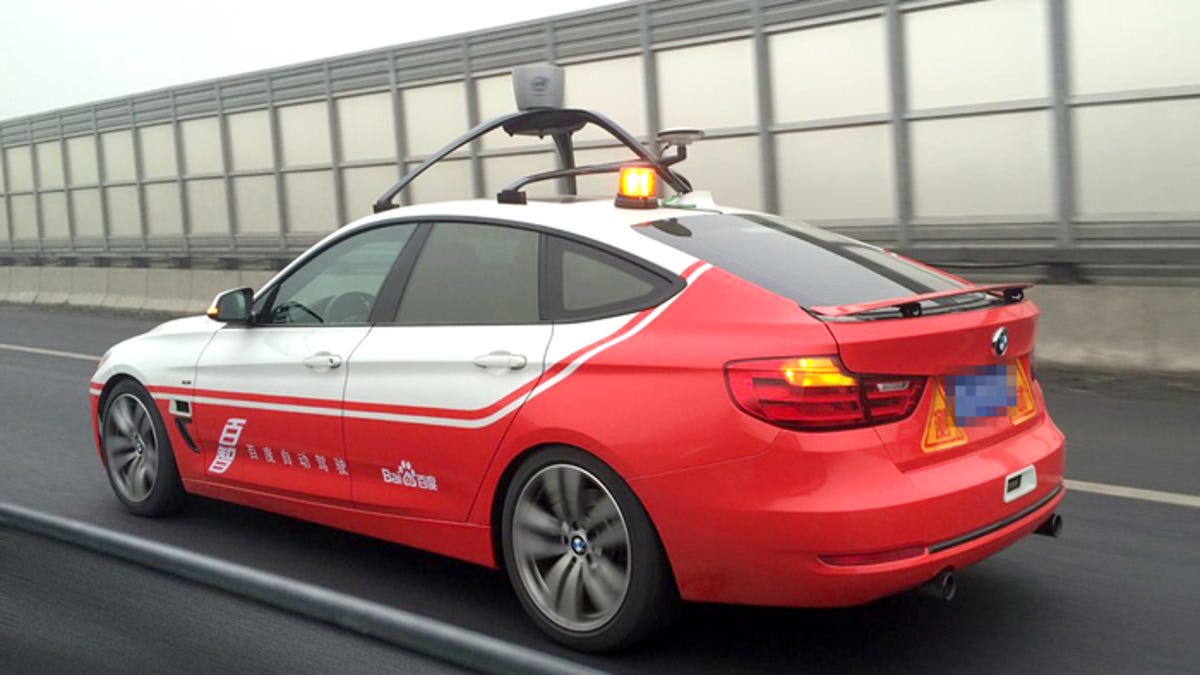China's Baidu heats up the road with its own self-driving car
The tech company plans to use autonomous vehicles as public shuttles rather than as cars for individual drivers.
Chinese tech giant Baidu has achieved a "milestone" in its effort to create self-driving vehicles that could hit the streets sometime in the future.
Baidu, best known for its search engine, said on Wednesday that its self-driving car was able to complete a rigorous and fully autonomous test on mixed roads under different environmental conditions. Baidu's self-driving car, a modified version of a BMW 3, was the first in China to achieve such a milestone, the company said.
The car drove on its own for the entire 30-kilometer (around 18 miles) route, turning not only left and right but also making U-turns. The vehicle also was able to slow down when it detected cars ahead, change lanes, pass other cars and merge into traffic. During the test, the car reached a peak speed of 100 kilometers (61 miles) per hour.
Self-driving cars have captured the imagination of companies across Silicon Valley and far beyond, including Google, Tesla Motors and ride-hailing service Uber, along with traditional automakers. For the moment, the tangible results have been prototypes largely limited to test facilities, but many involved expect to begin commercial sales as early as about 2020.
Baidu's high-speed trial represents an achievement in the testing of self-driving vehicles. Google's autonomous cars have logged more than 1 million miles, according to the company, but their speeds have been limited to 25 miles per hour. Though it's not the speed but the reliability of the cars that matter, Baidu may hold an edge over its rival with a smart piece of in-car software called AutoBrain.
AutoBrain's automated maps can record 3D road data to within a few centimeters of accuracy, Baidu said, which the car analyzes as a way to position itself. The technology also helps the vehicle recognize road lanes and determine the distance and speed of other cars.
Baidu is setting up a new business unit that will focus on creating self-driving vehicles to be used as public forms of transportation, Wang Jing, General Manager of Baidu's new Autonomous Driving Business Unit, told The Wall Street Journal. The company's plan is to develop autonomous vehicles for use as public shuttles, which would operate in fixed locations.
Another company is participating in its own way in the drive toward autonomous vehicles.
Samsung revealed on Wednesday that it plans to create a team to develop individual components, such as in-car entertainment, satellite navigation and autonomous driving technologies, that could be used in self-driving vehicles, Reuters reported. The company has been under the gun to find new ways of turning a profit in the wake of weaker sales and a shrinking market share for its smartphone lineup.


